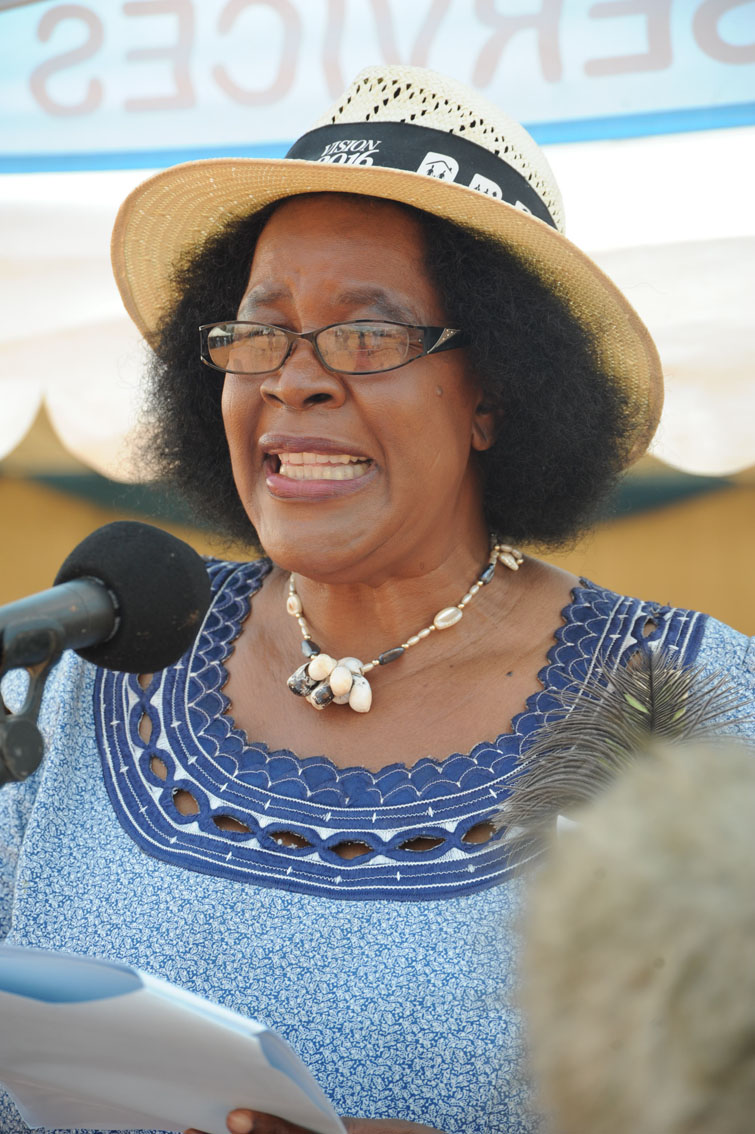Affirmative action framework benefits over 600 RADs
21 Feb 2013
A total of 683 skilled and unskilled people have been employed through the Affirmative Action Framework for the remote area communities countrywide.
The Assistant Minister of Local Government and Rural Development, Ms Botlogile Tshireletso said this at a recent kgotla meeting at Mahotshwane in Southern District.
She said over 200 students under the Rural Area Development Programme (RADP) were enrolled in different tertiary schools.
Ms Tshireletso, who is also the Member of Parliament for Mahalapye East, said Ipelegeng workers had been increased in remote areas, with Mahotshwane employing 140 people. This, she said, was done deliberately so that more people could benefit.
She said government was aware of general concerns that Ipelegeng wages were not enough to sustain a household, adding that they were still looking into the issue. She said hopefully the latter would be addressed soon.
Ms Tshireletso noted that government programmes focused more on rural area dwellers because they were far from services and did not have the same job opportunities as their counterparts in big villages and urban areas.
She said even though the poverty eradication programme was not selective, the intention was to make rural communities the focal point because in most cases, that was where abject poverty was concentrated.
She noted that the same strategy also applied to government-funded housing for the needy, saying a total of 222 houses were allocated for rural area dwellers.
The assistant minister applauded LIMID officers for effectively implementing the programme in their areas, saying a total of 643 people under the RADP had benefitted from LIMID countrywide.
Nonetheless, she expressed concern that some beneficiaries had proven to be irresponsible with the packages they were given. She consequently underscored the need for mindset change in order for programmes to be successful.
Ms Tshireletso urged beneficiaries to exercise utmost responsibility towards government programmes so that they did not go to waste. Furthermore, she called on government employees to implement and coordinate such programmes efficiently for positive results to be achieved.
She also discouraged residents of Mahotshwane from selling their ploughing fields in exchange for meagre amounts of money, or even small things such as clothes and foodstuff.
The assistant minister stressed that people should understand the value of land and that it was their children’s heritage.
She said it was distressing to find that some people continued to amass wealth by tricking those in rural areas into selling them plots. This, she said, made the poor get poorer as well as making children lose out on opportunities because their parents sold plots. ENDS
Source : BOPA
Author : Kehumile Moekejo
Location : Jwaneng
Event : Kgotla Meeting
Date : 21 Feb 2013







